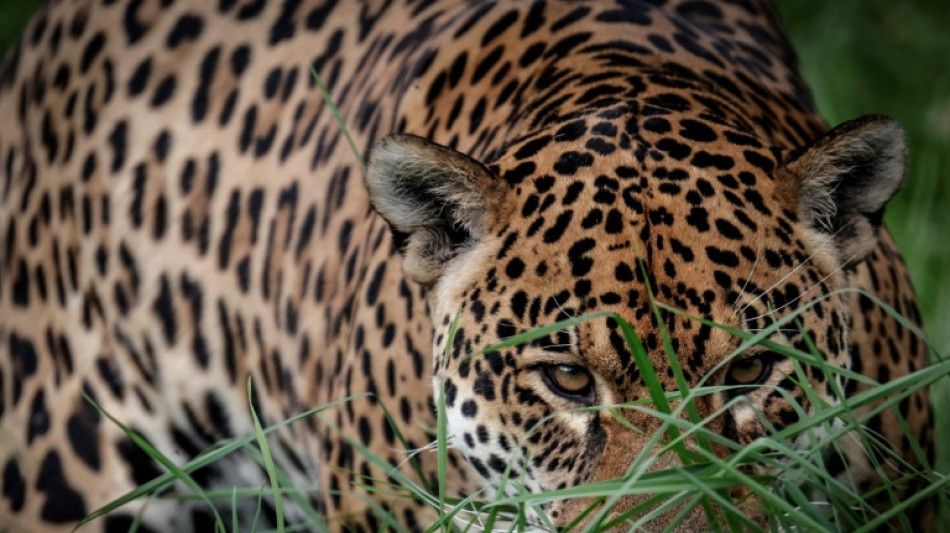
-
 The Cupra Raval will be launched in 2026
The Cupra Raval will be launched in 2026
-
New id.Polo comes electric

-
 Iran defies US threats to insist on right to enrich uranium
Iran defies US threats to insist on right to enrich uranium
-
Seifert powers New Zealand to their record T20 World Cup chase

-
 Naib's fifty lifts Afghanistan to 182-6 against New Zealand
Naib's fifty lifts Afghanistan to 182-6 against New Zealand
-
Paul Thomas Anderson wins top director prize for 'One Battle After Another'

-
 De Beers sale drags in diamond doldrums
De Beers sale drags in diamond doldrums
-
NFL embraces fashion as league seeks new audiences

-
 What's at stake for Indian agriculture in Trump's trade deal?
What's at stake for Indian agriculture in Trump's trade deal?
-
Real Madrid can wait - Siraj's dream night after late T20 call-up

-
 Castle's monster night fuels Spurs, Rockets rally to beat Thunder
Castle's monster night fuels Spurs, Rockets rally to beat Thunder
-
Japan votes in snow-hit snap polls as Takaichi eyes strong mandate

-
 Pakistan's capital picks concrete over trees, angering residents
Pakistan's capital picks concrete over trees, angering residents
-
Berlin's crumbling 'Russian houses' trapped in bureaucratic limbo

-
 Neglected killer: kala-azar disease surges in Kenya
Neglected killer: kala-azar disease surges in Kenya
-
Super Bowl set for Patriots-Seahawks showdown as politics swirl

-
 Sengun shines as Rockets rally to beat NBA champion Thunder
Sengun shines as Rockets rally to beat NBA champion Thunder
-
Matsuyama grabs PGA Phoenix Open lead with Hisatsune one back

-
 Washington Post CEO out after sweeping job cuts
Washington Post CEO out after sweeping job cuts
-
Haiti's transitional council hands power to PM

-
 N. Korea to hold party congress in February, first since 2021
N. Korea to hold party congress in February, first since 2021
-
Thailand votes after three leaders in two years

-
 Swiss joy as Von Allmen wins first gold of Winter Olympics
Swiss joy as Von Allmen wins first gold of Winter Olympics
-
George backs England to 'kick on' after Six Nations rout of Wales

-
 Malinin upstaged as Japan keep pressure on USA in skating team event
Malinin upstaged as Japan keep pressure on USA in skating team event
-
Japan's Kimura soars to Olympic gold in snowboard big air final

-
 Vail's golden comets Vonn and Shiffrin inspire those who follow
Vail's golden comets Vonn and Shiffrin inspire those who follow
-
Veteran French politician loses culture post over Epstein links

-
 Japan's Kimura wins Olympic snowboard big air gold
Japan's Kimura wins Olympic snowboard big air gold
-
Arteta backs confident Gyokeres to hit 'highest level'

-
 Hojlund the hero as Napoli snatch late win at Genoa
Hojlund the hero as Napoli snatch late win at Genoa
-
England's Arundell 'frustrated' despite hat-trick in Wales romp

-
 Lollobrigida skates to first Italian gold of Winter Olympics on her birthday
Lollobrigida skates to first Italian gold of Winter Olympics on her birthday
-
Arundell hat-trick inspires England thrashing of Wales in Six Nations opener

-
 Chile's climate summit chief to lead plastic pollution treaty talks
Chile's climate summit chief to lead plastic pollution treaty talks
-
Rosenior hails 'unstoppable' Palmer after treble tames Wolves

-
 French ex-minister offers resignation from Paris cultural hub over Epstein links
French ex-minister offers resignation from Paris cultural hub over Epstein links
-
New NBA dunk contest champ assured and shooting stars return

-
 Shiffrin says will use lessons learnt from Beijing flop at 2026 Games
Shiffrin says will use lessons learnt from Beijing flop at 2026 Games
-
Takaichi tipped for big win as Japan votes

-
 Lens return top of Ligue 1 with win over Rennes
Lens return top of Ligue 1 with win over Rennes
-
Shiffrin learning from Beijing lessons ahead of Milan-Cortina bow

-
 Demonstrators in Berlin call for fall of Iran's Islamic republic
Demonstrators in Berlin call for fall of Iran's Islamic republic
-
'Free the mountains!": clashes at Milan protest over Winter Olympics

-
 Townsend accepts pressure will mount on him after Italy defeat
Townsend accepts pressure will mount on him after Italy defeat
-
BMW iX3 new style and design

-
 Suryakumar's 84 leads India to opening win over USA in T20 World Cup
Suryakumar's 84 leads India to opening win over USA in T20 World Cup
-
Lollobrigida skates to first Italian gold of Milan-Cortina Games

-
 Barca beat Mallorca to extend Liga lead
Barca beat Mallorca to extend Liga lead
-
Gyokeres lifts Arsenal nine clear as Man Utd pile pressure on Frank


Wildlife populations plunge 73% since 1970: WWF
Wild populations of monitored animal species have plummeted over 70 percent in the last half-century, according to the latest edition of a landmark assessment by WWF published on Thursday.
Featuring data from 35,000 populations of more than 5,000 species of mammals, birds, amphibians, reptiles and fish, the WWF Living Planet Index shows accelerating declines across the globe.
In biodiversity-rich regions such as Latin America and the Caribbean, the figure for animal population loss is as high as 95 percent.
The report tracks trends in the abundance of a large number of species, not individual animal numbers.
It found that populations under review had fallen 73 percent since 1970, mostly due to human pressures.
The index has become an international reference and arrives just ahead of the next UN summit on biodiversity, which will spotlight the issue when it opens in Colombia later this month.
"The picture we are painting is incredibly concerning," said Kirsten Schuijt, Director General of WWF International, at a press briefing.
- Tipping points -
"This is not just about wildlife, it's about the essential ecosystems that sustain human life," said Daudi Sumba, chief conservation officer at WWF.
The report reiterates the need to simultaneously confront the "interconnected" crises of climate change and nature destruction, and warned of major "tipping points" approaching certain ecosystems.
"The changes could be irreversible, with devastating consequences for humanity," he said, using the example of deforestation in the Amazon, which could "shift this critical ecosystem from a carbon sink to a carbon source."
"Habitat degradation and loss, driven primarily by our food system, is the most reported threat in each region, followed by overexploitation, invasive species and disease," the report said.
Other threats include climate change, in particular in Latin America and the Caribbean, and pollution, notably in North America, Asia and the Pacific.
- 'Incredibly concerning' -
The biggest decline is found in populations of freshwater species, followed by terrestrial and marine vertebrates.
"We have emptied the oceans of 40 percent of their biomass," said Yann Laurans of WWF France.
Continent by continent, the average decline reached 95 percent in Latin America and the Caribbean, followed by Africa, down 76 percent, and then Asia and the Pacific, which declined 60 percent.
The reduction in populations is "less spectacular" in Europe, Central Asia and North America.
Some populations have stabilised or even expanded thanks to conservation efforts and the reintroduction of species, the report said.
The European bison, for example, disappeared in the wild in 1927 but in 2020 numbered 6,800 thanks to large-scale breeding and successful reintroduction, mainly in protected areas.
While calling the overall picture "incredibly concerning," Schuijt added: "The good news is that we're not yet past the point of no return."
She pointed to global efforts including a breakthrough pact landed at the last UN meeting on biodiversity in 2022 to protect 30 percent of the planet by 2030 from pollution, degradation and climate change.
But she warned, "all of these agreements have checkpoints in 2030 that are in danger of being missed."
Several scientific studies published by the journal Nature have accused WWF of methodological biases in its index that lead to an exaggerated extent of the decline of animals.
"We remain really confident of its robustness," said Andrew Terry of the Zoological Society of London at a press briefing, highlighting the use of a "range of indicators, looking at extinction risk, biodiversity and ecosystem health to really broaden that picture".
R.AbuNasser--SF-PST




